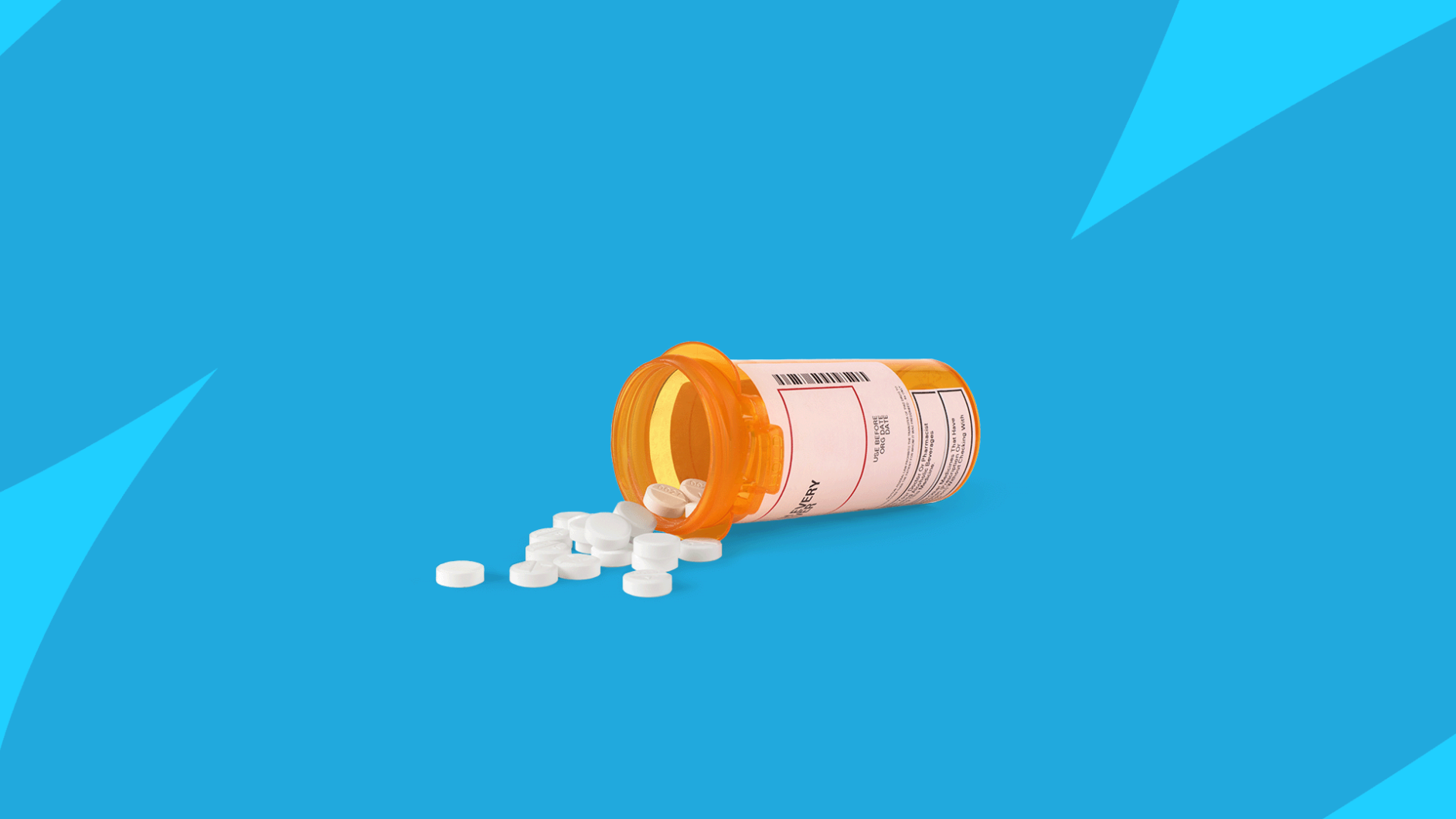Common donepezil side effects | Serious side effects | Dizziness | Cognitive functioning | Hallucinations | Side effects timeline | Contraindications | Warnings | Interactions | How to avoid side effects | How to treat side effects
Donepezil is a generic prescription drug known as an acetylcholinesterase inhibitor that is used to treat the symptoms of mild to severe Alzheimer’s disease. Also sold as brand-name Aricept, donepezil is sometimes prescribed off-label to treat the symptoms of a similar disease, dementia with Lewy bodies, or as short-term therapy to help improve cognitive issues following a stroke. Donepezil is one of three drugs used to improve the symptoms of Alzheimer’s that are called cholinesterase inhibitors—the other two are rivastigmine and galantamine. These drugs block an enzyme that breaks down acetylcholine, a chemical that passes signals between nerves. By increasing acetylcholine, these drugs increase brain activity and so improve cognition, memory, and the ability to function. However, donepezil and similar drugs do not slow or stop the progression of Alzheimer’s. Donepezil can be taken orally as a tablet or orally dissolving tablet (ODT), but can also be applied as a transdermal patch called Adlarity. Realistically speaking, caregivers will be responsible for dosing and managing the person with dementia, so it’s important to understand, recognize, and manage possible side effects of donepezil treatment.
Common side effects of donepezil
The most common side effect of donepezil is nausea, but the types and incidences of side effects could vary based on the dose of donepezil and how severe the dementia is. In order of incidence, the most common side effects of donepezil are:
- Nausea
- Diarrhea
- Headache
- Insomnia
- Pain
- Dizziness
- Muscle cramps
- Fatigue
- Vomiting
- Loss of appetite
- Skin discoloration
- Abnormal dreams
- Depression
- Weight loss
The problem with donepezil’s minor side effects is that some of them are commonly experienced by people with dementia. However, many common side effects in people taking donepezil occur at a higher rate than in people not taking the drug. For many of donepezil’s minor side effects, it can be hard to know if the side effect is associated with donepezil or the underlying condition, but minor side effects usually get better over time.
Serious side effects of donepezil
The most serious side effects of donepezil include:
- Hallucinations
- Heart block
- Slow heart rate
- Irregular heartbeats
- Swollen pancreas
- Seizures
- Neuroleptic malignant syndrome (NMS)
- Severe muscle damage
- Hemolytic anemia
- Urinary obstruction
- Fainting
- Gastrointestinal bleeding
Dizziness
Dizziness is a very common problem in people taking donepezil. It can also be a problem in people with dementia. Feeling dizzy due to low blood pressure when standing up can be one of the first warning signs of Alzheimer’s. Dizziness is also one of the most common symptoms of a similar disease called dementia with Lewy bodies which is also treated off-label with donepezil. In clinical trials of patients with mild to moderate Alzheimer’s, 8% of people taking donepezil experienced dizziness, but 6% of those not taking donepezil reported the same problem. Dizziness itself is a minor side effect but can cause serious problems such as falling, accidents, and injury. Ask the prescriber for medical advice if dizziness is a regular problem.
Cognitive functioning
People prescribed donepezil already have some degree of cognitive dysfunction involving memory, understanding, thinking, language, reason, and attention. In general, donepezil improves cognitive ability and the daily life of patients with mild to moderate Alzheimer’s disease. However, it will not stop or necessarily slow the progress of cognitive decline because donepezil doesn’t treat the underlying cause of Alzheimer’s, only the symptoms. In this sense, most people taking donepezil for Alzheimer’s disease will experience a worsening of their cognitive impairment over a long period of time.
Hallucinations
Hallucinations are a serious but uncommon side effect of donepezil, occurring mainly in people who have severe dementia due to Alzheimer’s. Hallucinations, however, are also a common symptom of dementia. In clinical trials, people taking donepezil experienced hallucinations at only a slightly higher rate than placebo.
Donepezil side effects and the elderly
Alzheimer’s is primarily a disease of the elderly. Less than 10% of people are diagnosed with Alzheimer’s before the age of 65. Clinical trials showed that there is no difference in effectiveness or side effects based on advanced age.
How soon do donepezil side effects start?
Many of donepezil’s most common side effects such as nausea, vomiting, diarrhea, and headache can happen early in treatment after one or more doses. Serious side effects involving the heart can also occur early during treatment. Some common side effects like loss of appetite or muscle cramps are delayed side effects. The majority of severe side effects are delayed side effects.
How long do donepezil side effects last?
The side effects that donepezil is most clearly associated with, such as nausea, diarrhea, insomnia, fatigue, muscle cramps, and headache, usually get better over time. Some of these problems, however, are also associated with dementia. Side effects caused by donepezil may improve after the drug has been stopped. Many of the most serious side effects may also improve after the drug is discontinued.
What are the long-term side effects of donepezil?
Donepezil is FDA-approved to treat all three stages of Alzheimer’s, so the treatment could last for years. There are no side effects specifically due to long-term use. Because donepezil does not slow or stop the progress of Alzheimer’s, the steady loss of cognitive function and other associated neurological deficits can be expected as the disease progresses. However, donepezil can help stabilize cognitive symptoms during the duration of treatment.
Donepezil contraindications
Donepezil is never given to people who have had an allergic reaction to the drug.
Pregnancy
Alzheimer’s is a disease that mainly afflicts people older than 65, so donepezil has never been studied in pregnant women. It is unknown if there is a risk to the fetus. Donepezil should not be used during pregnancy unless the benefits outweigh the risks.
Breastfeeding
Because Alzheimer’s is a disease of older adults, donepezil has not been studied in women who are breastfeeding. It is not known if donepezil is present in human breast milk or if it affects a nursing infant.
Children
There is limited information about the use of donepezil in children. It has never been studied in children and adolescents.
Donepezil warnings
Even though many of donepezil’s side effects are mild, there are cases where people are more at risk when taking this drug.
Cautions
Some pre-existing conditions can cause problems when donepezil is taken. Healthcare professionals will be careful, monitor for side effects, and may perform extra testing to make sure these problems don’t become severe.
- Slow heart rate or heart conduction problems: Donepezil can slow down the heart in people with a slow heart rate or problems with the way electrical impulses move through the heart (heart conduction problems) such as heart block, sick sinus syndrome, or certain types of irregular heartbeats.
- Gastrointestinal disease: Drugs like donepezil will increase acid production in the stomach, so the drug can worsen pre-existing conditions such as ulcers and gastrointestinal bleeding.
- Asthma, emphysema, bronchitis, or other lung disease: Donepezil may constrict airway passages and increase secretions in the lungs, making breathing harder for people with asthma or chronic obstructive pulmonary disease (COPD).
- Seizure disorder: Seizures are a rare side effect of donepezil, but they may be more likely in people who already have problems with seizures.
- Bladder obstruction: Donepezil could block urine outflow from the bladder, making urination even more difficult for people with bladder obstruction.
- Liver disease: Side effects may be more likely in people with decreased liver function.
- Surgery: Donepezil could increase the effects of depolarizing neuromuscular blocking agents and may increase muscle relaxation under anesthesia
Abuse and dependence
Donepezil is not associated with drug abuse, dependency, or withdrawal.
Overdose
An overdose of donepezil or similar drugs is a medical emergency. Get medical help immediately. Symptoms of an overdose include severe nausea, vomiting, sweating, excess saliva, slow heart rate, low blood pressure, muscle weakness, convulsions, and slow and shallow breathing. In the worst-case scenario, breathing can stop altogether.
Donepezil interactions
As with all prescription drugs, donepezil can interact with other drugs to produce unwanted problems. The central concerns are drug interactions that change the heart’s rhythm or slow the heart. These interactions are rare but can happen with:
- Heart rhythm drugs such as quinidine
- Beta blockers
- Macrolide antibiotics
- Quinolone antibiotics
- Some cancer drugs called kinase inhibitors
- Some AIDS/HIV medications
- Some anti-nausea drugs
- Some drugs that treat malaria
- Some antipsychotics
- Some antidepressants
Some drugs, like donepezil, increase acetylcholine in the body, or they can mimic the action of acetylcholine. The most common are drugs that treat muscle weakness due to myasthenia gravis. These drugs can worsen the side effects of donepezil including heart problems.
Some drugs called anticholinergics block acetylcholine, essentially doing the opposite of what donepezil does. In this way, anticholinergics work against acetylcholinesterase inhibitors like donepezil, making it less effective. Healthcare professionals, however, are cautious about using these drugs in people with Alzheimer’s since they can impair cognitive function. When used chronically, anticholinergics may even raise the risk of dementia in older adults. The most commonly-used anticholinergics are:
- Antidepressants
- Antipsychotic medications
- Some overactive bladder drugs
- Some irritable bowel syndrome (IBS) drugs
- Certain anti-nausea and diarrhea drugs
- Various antihistamines including Benadryl (diphenhydramine) and Dramamine (dimenhydrinate)
- A small number of Parkinson’s disease medications
- Some asthma and COPD drugs
Some epilepsy drugs such as carbamazepine, phenobarbital, and phenytoin and some corticosteroids such as dexamethasone may reduce levels of donepezil and make it less effective.
Nonsteroidal anti-inflammatory drugs (NSAIDs) can increase the risk of gastrointestinal problems including bleeding or perforation.
How to avoid donepezil side effects
Most people prescribed donepezil will have the drug administered by a caregiver. It may be difficult to monitor for side effects, but there are ways to help minimize these side effects.
1. Tell the healthcare provider about all medical conditions
In most cases, the prescribing healthcare provider will have a complete medical history and have performed many tests. The most important medical conditions the prescriber needs to know about are:
- Heart problems
- Asthma, COPD, or other lung problems
- Any history of seizures
- Stomach ulcers
- Problems urinating
- Liver problems
- Kidney problems
- Any upcoming major surgery
2. Tell the prescriber about all medications being taken
The second most effective way to avoid side effects is to make sure both the prescriber and pharmacist have a complete picture of all drugs being taken. The best solution is to prepare a written list that includes all prescription drugs, over-the-counter medications, and supplements being taken regularly. Share this list with healthcare professionals who are prescribing medications.
3. Tell the prescriber if there are problems swallowing tablets
Although it’s not necessarily related to side effects, there will be problems if a person has difficulty swallowing donepezil tablets. The prescriber can prescribe orally dissolving tablets or a skin patch instead.
4. Administer donepezil as instructed
Side effects are more likely if too much medicine is taken. In many cases, donepezil should be given by a caregiver. The prescribing doctor is the best source for drug information. Follow the instructions given by the prescriber and only give one dose of donepezil per day. Donepezil ODT comes in 5 or 10 mg tablets. A 23 mg strength is also available for regular donepezil tablets. A missed dose should not be taken. Instead, give the next dose when it’s scheduled.
5. Do not expose the donepezil skin patch to heat
One way to avoid taking too much drug is to use donepezil skin patches. These will deliver a steady and constant dose throughout the day. However, keep the patch away from heat including heating pads, saunas, or excessive sunlight. Heat will cause the skin to absorb more donepezil, raising the risk of side effects.
6. Avoid NSAIDs
Popular over-the-counter pain relievers such as aspirin, ibuprofen, and naproxen raise the risk of stomach bleeding and pain when taken with donepezil. Use acetaminophen instead.
How to treat side effects of donepezil
Caregivers will need to closely monitor people taking donepezil for side effects. Some minor side effects can be managed at home, but others will require medical attention.
Dizziness
Have the person sit down or lie down if a bout of dizziness comes on. That person should stay seated or lying until the dizzy spell passes. Then they should rise slowly to avoid becoming dizzy again. The goal is to avoid fainting, falling, accidents, or injury.
Heart problems
Slow heartbeats and other heart rate issues should be reported to the prescribing healthcare provider. However, if the person is fainting, having trouble breathing, or exhibiting extreme tiredness along with bradycardia (the heart is beating less than 60 beats per minute), get immediate medical attention.
Difficulty urinating
If urination frequency declines or the person taking donepezil has problems urinating, then immediately call the prescribing healthcare provider.
Digestive system problems
Heartburn, stomach pain, or nausea should be reported to the prescribing healthcare provider. Vomiting or stomach bleeding, however, should be immediately reported to the prescriber. Symptoms of stomach bleeding include black or tarry stools, blood in the stools, blood in the vomit, or blood clots in the vomit (coffee ground emesis).
Breathing problems
Get medical attention or call the prescribing healthcare provider if there are problems breathing such as wheezing or shortness of breath.
Seizures
Get medical help or call the prescribing healthcare provider if a seizure is experienced during donepezil treatment.
Sources
- Adlarity prescribing information, U.S. National Library of Medicine
- Alzheimer disease, StatPearls
- Alzheimer disease: Pharmacologic and nonpharmacologic therapies for cognitive and functional symptoms, American Family Physician
- Anticholinergic drug exposure and the risk of dementia: A nested case-control study, JAMA
- Aricept prescribing information, U.S. National Library of Medicine
- Association of orthostatic hypotension with incident dementia, stroke, and cognitive decline, Neurology
- Donepezil, Epocrates
- Donepezil hydrochloride drug summary, Prescriber’s Digital Reference
- Donepezil hydrochloride tablet, U.S. National Library of Medicine
- What is Lewy body dementia? Causes, symptoms, and treatment, National Institute on Aging
- Donepezil improves cognition and global function in Alzheimer disease: A 15-week, double-blind, placebo-controlled study, JAMA











